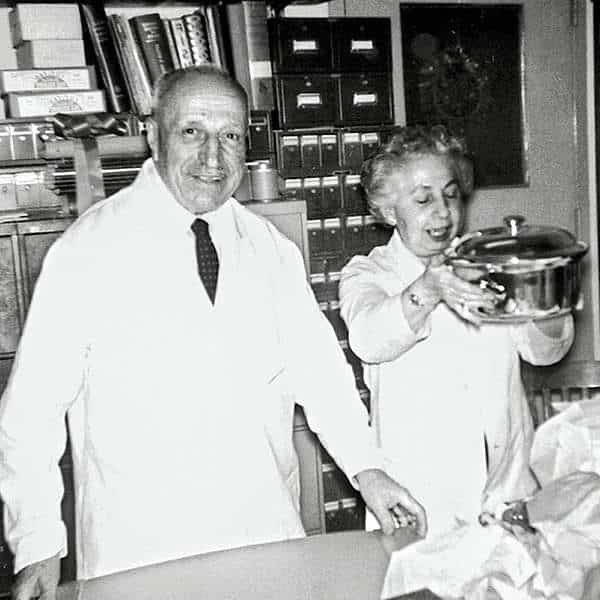This is the story of Georgios Papanikolaou and his wife Andromachi (Mary) Mavrogeni.
Born on the Greek island of Euboea in 1883, Georgios received a medical degree in 1904 from the National University of Athens. Upon graduation, he worked in the military as an assistant surgeon and then after his discharge, went back home to take care of leprosy patients for two years.
Eager to further his education, Georgios attended the University of Munich and received a doctorate degree in zoology in 1910. In the same year, he eloped with Mary who he had met while on a ferry boat ride to Athens. Mary was also well-educated, spoke fluent French, and came from a prominent Greek family.
In 1913, Georgios and Mary decided to move to New York, despite knowing no English and only having $250 in their pockets. The couple struggled to survive—Georgios played violin in restaurants and sold carpets while Mary worked as seamstress, sewing buttons for $5 a week. Their fortunes soon changed when Georgios got a job as a researcher at Cornell University. Mary soon joined him as a technician.
In 1928, Georgios discovered a way to detect cancer by taking samples from the cervix and examining them under the microscope.
He had confirmed these observations in female guinea pigs but needed a way to verify if his techniques would work on human females. Unable to get access to patients, Mary volunteered for her husband’s experiment by having her cervix sampled every day for 21 years and deciding to forgo children. She also threw parties for female friends and convinced them to have their cervixes sampled.
Georgios observed the cancer cells for one of her friends who went on to be diagnosed with cervical cancer. “The first observation of cancer cells in the smear of the uterine cervix gave me one of the greatest thrills I ever experienced during my scientific career,” he said.
The couple went on to develop the Pap smear, saving millions of lives through early cervical cancer detection.


